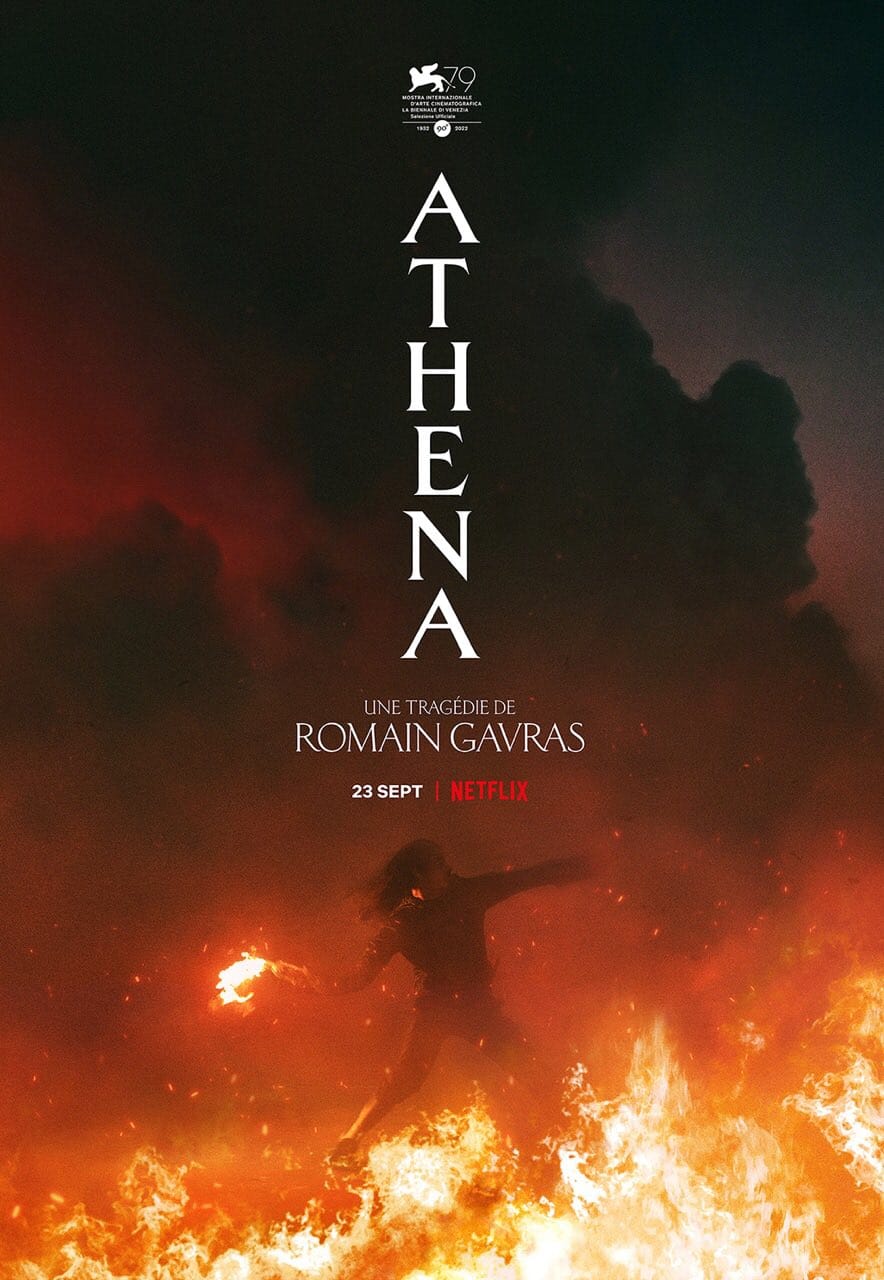Athena
"both sides" apologia

After the tragic death of their youngest brother at the hands of law enforcement, three siblings demand answers from their city, sparking a revolution along the way.
Right from the start here, let me be clear about one thing…
Athena’s opening One-shot is incredible. Just Incredible. It starts out with a tense press conference that erupts into a riot at the police station. Masked young people loot and burn, firing off fireworks as they race away in stolen police vehicles back to their home, a low-income housing block that the residents have turned into a fortress. There, young revolutionaries stand on the walls, armed and masked, awaiting their return, ready to do battle, as smoke rises in the background, and sirens grow louder in the distance.
It’s stunning. Absolutely stunning.
So, after their youngest brother is killed by police, three siblings—all Algerian immigrants in France—have different reactions. Moktar, the oldest, is the local drug dealer on the housing block, and he is more concerned with business, and the trouble that will come with a heavy police presence if there is a riot. Abdel, the 2nd oldest, is a soldier newly returned home. He wants to mourn with family. He wants to do things the proper way, the “right” way. The third brother, Karim, the youngest now with the death of their baby brother, has decided to burn it all down, and he has organized the revolt that has overtaken their housing block, vowing that the violence will continue until the officers responsible for his brother’s death are charged with murder.
The film follows a long night of siege warfare, and the pitched battle that goes on between the residents of the housing block and the police gathered outside.
Each of the three brothers represents the different ways that marginalized communities often face the systems designed to hold them down and destroy them. Abdel, the soldier, is the model minority, who discovers the hard way that no matter what you do, no matter how “good” you are, you’ll never truly be one of them. Moktar, the drug dealer, is an opportunist, grabbing what he can, when he can, and taking the rest, fully aware that the system will kill him for it, but flying by the seat of his pants anyway, and ultimately paying the price for his presumption. Karim, the last brother, burns with righteous anger, too hurt to ever again be anything but angry, too hurt to care what that means, because as he sees it, there are no other options left, so he’s determined to burn it all down, even if that means that the flames he deliberately set at his own feet end up consuming him too.
All of this while facing a seemingly never-ending rush of black-armored, black-helmeted, jackbooted thugs in black uniforms. The police officers here are a relentless tide of raised fists and stomping boots, a dark crowd in the fire-lit night, a single mass of angry retribution and harm, all eager truncheons in a cloud of choking teargas, but then if caught alone… a single small and sniveling coward, pleading for their humanity to be recognized.
And again, the camera throughout all of this is stunning, flowing through burning buildings, angry crowds, bloody melees and outright panic. It’s fantastic work, long gliding shots that weave through the chaos, tightly focused on the story, never losing track of the geography it inhabits, never falling into a jumble of confusing edits. It’s phenomenal work.
So, that's all good. Amazing, really. Like I said, it’s phenomenal work.
The problem is, the filmmakers are chickenshit cowards.
While not a perfect film, the camera work alone would’ve made it laudable, if not for the epilogue. In a disappointing and shitty move, there’s a stinger ending that reveals that the men who actually killed the youngest brother were not police at all, but were far-right agitators dressed up as cops. These men went out, randomly picked out the youngest brother, grabbed him as if they were cops, took him to an empty lot and beat him to death, and then released the video of the act, acting as if a witness had caught it all on film, all in order to bait the exact kind of response that the brothers ended up giving them.
This undercuts everything that happened in the film because of that death, turning the brothers’ riotous fury, their very real pain, the same kind of pain experienced daily all across the world, and made it out as if it were all their fault for falling for the bait. It implies that the brothers and their community were no better than stupid animals, unable to control themselves, that they were the fools who proved the bigots “right,” and that the police were innocent the whole time, if not even the actual victims of the whole thing. The film turns a story about the rigteous anger of the oppressed into a tut-tuting fingerwag rug-pull scold, chastising the actual victims for not being more “reasonable,” all while acting as if the police and the far right Brownshirts are two separate and distinct groups…
This epilogue removes the blame from the system, and places it instead squarely on the shoulders of “a few bad apples,” which is the usual bullshit you hear from White Centrists here in America, who are also never anything but cowardly bigots.
This shouldn’t be all that surprising, really, France has the same White Supremacy problems America does, but still… there’s no denying that it sucks, there’s no denying the extra sour taste of disappointment upon discovering that ultimately, Athena is all style and no substance, with nothing to say but Both-sider bullshit wrapped up in a bunch of exploitive nonsense and showy camera tricks.
Fuck this movie.
